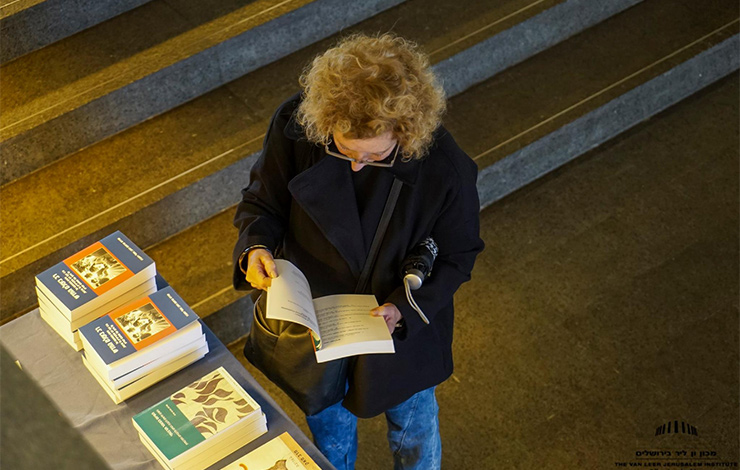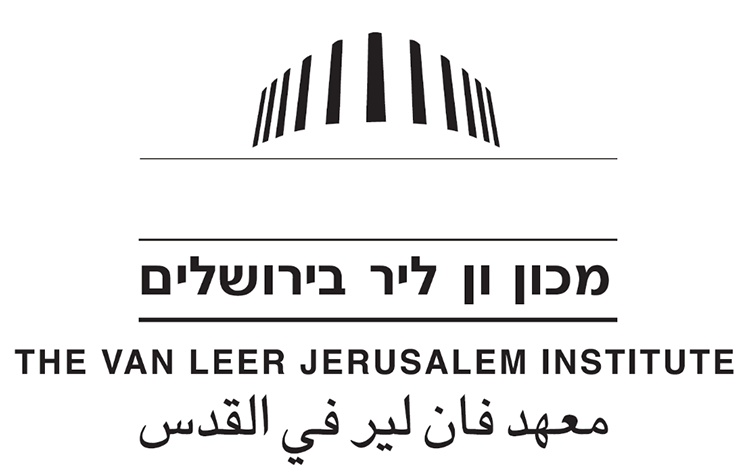The UN Security Council Resolution 1325, which Israel adopted several years ago, calls for equal participation of women in all peace and security initiatives. This program created and implemented a National Action Plan for UNSCR 1325 to bring more women – diverse in terms of ethnicity, religion, and disability – into conflict resolution processes to prevent violence and improve security.
Challenge

United Nations Security Council Resolution 1325 calls for the full and equal participation of women in all peace and security initiatives, along with the mainstreaming of gender issues. Israel was the first UN member to incorporate parts of UNSCR 1325 and related resolutions in its national legislation - Amendment 4 (2005) of the Equality of Women's Rights Law 1951. This Amendment was enacted following intense lobbying by women’s organizations in Israel (including the applicants) and represents progressive legislation, both in terms of its timing and its content. The law mandates the participation of women in committees and teams in all policy fields (including peace negotiations), and requires representation of women from diverse social groups. At this stage, however, this legislation does not pertain to the gender mainstreaming of government policies within the Israeli establishment.
However, in spite of the impressive legislative achievement of Amendment 4 and several examples of success, no single government body adopted the values of the law as a priority, nor worked from within to monitor and enforce its implementation. Indeed, women comprise only 23 percent of the current Knesset with only four (relatively minor) ministers. Furthermore, the absence of ultra-Orthodox, Palestinian-Israeli, Mizrahi and immigrant women from these bodies is particularly apparent. In this reality, women from across the spectrum endure gender-based, physical, economic, and political violence, and remain absent from decision-making forums concerning the resolution of the Israeli-Palestinian conflict. Moreover, the crucial issues of defense and security are seen as "male" and thus gender perspectives have not been adequately developed and/or integrated into policy-making in this central field, which impacts all aspects of Israeli society. Gender inequality in Israeli public life, therefore, constitutes one of the most systematic impediments to the full realization of Israel’s democratic potential. An Israeli National Action Plan is necessary to safeguard, protect, empower and promote women in general, and in the peace and security realm in particular, as well as serve as an example of democratization for other spheres in Israeli life.
Over the last five years, we have seen national action plans (NAP) adopted by 43 countries across the world as exemplified by the United Kingdom, Finland, Bosnia, Spain, Liberia and the United States. The initiative to adopt a NAP took root in civil society and, therefore, in most countries, civil society is an integral component of the NAP’s formulation and implementation, as well as its monitoring following its adoption by the government.
Program Summary
This ambitious project seeks to create a NAP for the application of UNSCR 1325 in Israel, with an emphasis on the increased participation of women in conflict resolution processes in Israel, prevention of further violence and conflict and the protection of women from violence. The NAP takes into account Israel’s unique context of an ongoing armed conflict that has spawned a militaristic society that excludes women from decision-making processes and forums. The Israeli Action Plan took root in 2013 and is being formulated and advanced over 24 months, using a participatory, transparent process, the highest level of political leadership, and relevant government agencies. It joins 43 other countries around the world that have already formulated national action plans for enacting UNSCR 1325. The initiative aims to:
- Produce an Israeli Action Plan, in light of the principles of UNSCR 1325;
- Provide an additional and alternative support mechanism for Israeli leaders to work toward the resolution of the Israeli-Palestinian conflict;
- Position the pursuit of gender equality as an axis in peacemaking.
The activities being implemented in this project include the formation of an active Taskforce of 35 organizations representing the diversity of women’s voices in Israeli-civil society organizations, academic institutions and activist women to participate in the Planning Forum. The Planning Forum comprises a series of roundtable meetings once every two months for the duration of the project, harnessing the organizations in the joint production and advancement of an Israeli Action Plan, the project’s main output in Hebrew, Arabic, and English. The Planning Forum has focused on the different aims of the program, hearing the range of women’s views on issues relating to women’s diverse representation in decision-making forums, as well as issues relating to peace and security in Israel; notions of women and girls’ protection – in public and private spaces as well as within the context of the Israeli-Palestinian conflict; and the tools required to prevent gender-based violence.
The Israeli Action Plan Online Community of relevant stakeholders and an Israeli Action Plan Portal is being established – a further output of the action. An international conference that launched the Israeli Action Plan took place on October 31st, 2013, the historic date of the resolution. An additional conference took place in 2014. Three applied research studies are being undertaken to form the basis of, and justification for, an Israeli Action Plan:
- An analysis of the local elements regarding the incorporation of UNSCR 1325 in Israel;
- A comparative report on best practices for the implementation of UNSCR 1325, based on the experience acquired in other countries; and
- A baseline report on the state of women's representation in decision-making forums and processes in Israel.
In advancing the Israeli Action Plan among the Israeli establishment and the public, extensive media activities are being undertaken, employing traditional and new media tools, as well as media monitoring and polling.
Impact
The national implementation of UNSCR 1325 may be viewed as a crucial step in promoting a sustainable peace to the Israeli-Palestinian conflict. It can also be seen as a window of opportunity to endorse new approaches to negotiation and introduce a more inclusive political framework to advance women’s participation. In light of the project’s participatory planning and research-based methodology, the formulation of an Israeli Action Plan will also serve to develop alternative knowledge and framing of the issues on the Palestinian-Israeli conflict agenda, as well as proposing methods of inserting gender-oriented perspectives into current and future peace negotiations. In formulating concrete policy recommendations for women's full inclusion in formal and informal peace processes and the full assimilation of gender perspectives in peace agreements, the action will propel notions of “inclusive security”. Indeed, this project reflects a process for changing the security discourse in Israeli society, commencing within the Taskforce and ultimately within the Israeli establishment. In this way, this project serves to increase knowledge and awareness of ways of resolving the core conflict issues. Along the same vein, it also serves to enhance the enforcement of existing gender mainstreaming mechanisms and legislation and in turn enhance representation and women's protection against gender-based violence.
Beneficiaries include Israeli women and the Israeli general public. Israeli women have been mostly absent from public life, particularly within the realm of peace and security. This absence is anchored in cultural, patriarchal and religious perceptions, which place economic and public responsibilities on men and give responsibility over the private sphere – caring for the family and the home – to women. This is reinforced by the importance placed in Israel on military service in the Israeli Defense Forces and the male norm in this regard. Women’s participation in decision-making processes pertaining to the resolution of the Israeli-Palestinian conflict in Israel will not only uphold both Israeli and international law, but will ensure that women’s issues and gender perspectives, representing the diversity of women in Israel, are manifest in all security arrangements and peace agreements, including the physical protection of women and girls within the conflict. In this regard, Palestinian women are also beneficiaries of the action.
The general Israeli public also stands to benefit from this initiative. Gender inequality in public life forms one of the most systematic impediments to the full realization of Israel’s democratic potential. The absence of women from decision-making bodies not only compromises values of equal representation, but adversely affects the implementation of existing gender-oriented legislation, and severely constricts the range of policy perspectives and women’s empowerment initiatives. More women involved in the peace and security sphere in Israel translates into representation, participation and equality - essential values of democracy. And thus, this action will serve to fortify Israel’s democracy, benefiting the general public. This move toward greater substantive democracy will no doubt have a multiplier effect in enhancing the democratic foundations in other areas of Israeli life.
Partners
The partners to the action are the Center for Women in the Public Sphere (WIPS) at the Van Leer Jerusalem Institute (VLJI) generates knowledge and integrate concepts of gender mainstreaming into Israeli institutions as a means of fortifying Israel's democratic foundations. Itach-Maaki - Women Lawyers for Social Justice engenders social change by using the law to address the needs and rights of women from the social, economic and geographic periphery of Israel. Agenda, Israeli Center for Strategic Communications works to reprioritize and reframe social change issues within the Israeli public debate and media.


